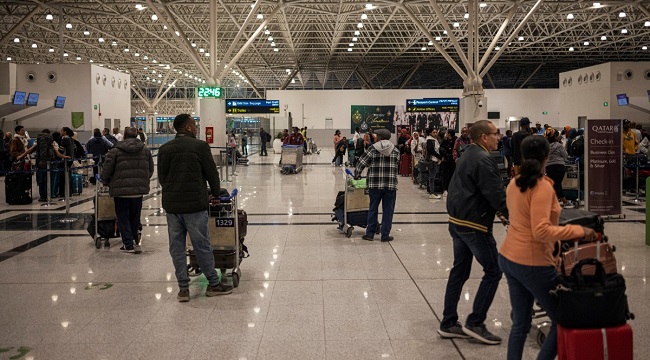The governor of the Central Bank of Nigeria (CBN), Sanusi Lamido on Tuesday reacted to a statement credited to a former President, Olusegun Obasanjo, who said that the planned introduction of the N5000 note will increase inflation in the country.
Mr Obasanjo had on Thursday said the introduction of the N5000 note would kill production and affect small businesses negatively.
The former president, who disclosed this at a roundtable advocacy forum organised by the Institute of Directors, in Lagos, said the way, Mr Sanusi, was fighting inflation by removing money from circulation was improper.
However, speaking at the sixth annual conference of the Chartered Institute of Bankers of Nigeria, Mr Sanusi said Mr Obasanjo had introduced more high denomination in Nigeria than any other Head of State.
“General Obasanjo did N20; he did N100, N200, N500 and N1000. He has introduced more higher denomination than any Head of States,” Mr Sanusi said.
The CBN governor said that during the period Mr Obasanjo was introducing high denomination inflation in Nigeria was actually low.
“General Obasanjo did N100 in 1999; then he did N200 in 2000; he did N500 I think two years later; and did N1000. In that period, inflation was coming down because it was accompanied by very tight monetary and fiscal policies during his reforms.
“For somebody who have gone through that to come and stand up and say ‘introducing a higher denomination causes inflation’ I don’t know if somebody wrote his speech. I’m trying to see him or if he was misquoted.
“If he actually said that then he must be the single most important determinant of inflation in our history given the number of notes that he introduced,” he said
Mr Sanusi said printing higher denomination without increasing the money supply in the economy will not increase inflation. “This is simple economics,” he said.
He said that the cost of printing and minting all denomination of currency in 2009 was N47 billion and that by 2011 the CBN brought this cost down to N32 billion.
He said that by 2014 the cost would further be reduced to N25 billion thereby saving about 50 percent of the total cost of printing and minting all denomination of currency.
Mr Sanusi said the N5000 note would not cost more than N3 billion to print.





